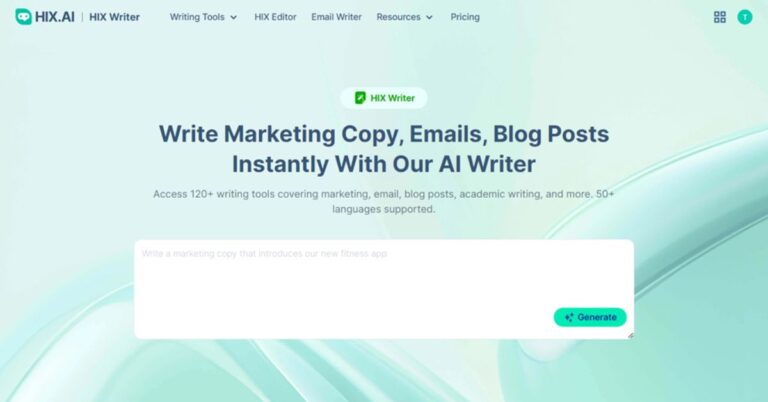Best PKM Apps for Sharing a Digital Garden: Cultivating Knowledge in the Digital Age
Speaking from the point of view of an established writer and an enthusiastic user of Personal Knowledge Management Best PKM Apps for Sharing a Digital Garden, I have been exposed to different apps in this area to compose and spread my digital garden. In the text, I am going to draw you closer to the topic of digital gardens and the electronic filing system of KCēMLi that you can access and share your ecosystem.
Understanding Digital Gardens
The digital garden is a knowledge base that individuals or e-resources can build and use to distribute their information over time. Unfortunately, none of the other digital gardens on the internet are in any way similar to the one the author is creating. Also, no blog or website could be compared to the digital garden. It is rather a collection of thoughts, ideas, and information that are interconnected and stimulate critical thinking and creativity. They facilitate deeper inquiry and become a constant process of learning and evolving.
Key Features of PKM Apps for Digital Gardens
When checking PKM apps while depiction the digital garden, include such traits as below:
- Ease of note-taking and linking
- Flexibility in organizing information
- Ability to publish and share content
- Collaboration features
- Cross-platform compatibility
- Customization options
Top PKM Apps for Sharing Digital Gardens
Obsidian
Obsidian now enjoys a steady online transformation from mere script to all the features and flexibility that it offers to chameleon users.
Pros:
- Markdown files are stored in the local environment
- Well-designed ecosystem plugins
- Graph view for visualizing connections
- You can customize it with themes and CSS
Cons:
- The main software is rather inaccessible to new users but nonetheless recommendable
- Sharing Obsidian with a wider audience is reliant on the usage of third-party alternatives or paying for Obsidian Publish.
Pros:
- Best in class bidirectional link
- Simple daily notes for journaling
- Graph overview of your knowledge base
- Built-in sharing and collaboration features
Cons:
- You need to pay a subscription in order to use Roam Research
- Lack of customization is a drawback
Notion
Notion is a basic given space that can be used for notes, databases and project management equally
Pros:
- More flexibility, as you can change most aspects of the app
- Authorized database system allows for diverse data clustering
- Easy sharing and collaboration
- Web clipper for taxonomies
Cons:
- Newcomers find it hard to adjust and may want to drop out of Notion
- Less offline functionality is another issue to be reluctant about
TiddlyWiki
TiddlyWiki is a special wiki system that consists of a single file and is extremely customizable.
Pros:
- The software is free to use and no one has to pay for the whole open-source project
- You can use the tool in a more personalized way since you can download many plugins and themes
- Work completely online or offline
- It is easy for the beginner to publish the content and it scares the experienced user of TW.
Cons:
- There are fewer instructional materials
- Other tools like Obsidian and Roam still have superior UI/UX
LogSeq
LogSeq is a composite open-source program that is a union of the main features of Roam Research and Org-mode.
Pros:
- A free or paid option is available
- A local model integrated with Git sync
- Compatible with both Org-style and Markdown
- Provides a built-in spaced repetition method
Cons:
- It is inconvenient to share knowledge using built-in features
- LogSeq is still in development and may occasionally have bugs
Choosing the Right PKM App for Your Digital Garden
The choice of the tool for the digital garden that you consider as the best sharing provider depends on your specific goals and preferences. The following points are the things to be considered:
- The time spent on a learning curve. How long are you ready to spend in the process of learning it?
- Publishing Platforms. Is it necessary for has a publisher application or are you ok with home-made apps, like OBSIDIAN and Markdown?
- Do you need a downloading function? Are you interested in a fully customizable interface that allows you to program the function also?
- Linkage with other people. Are you planning to build knowledge in conjunction with others?
- Cost. Are you on the lookout for a free app or will you pay for a premium one?
Tips for Cultivating Your Digital Garden
Choose any PKM that best fits you besides the following commas to proceed with a successful digital gardening.
- Start simple: Initiate only with some keystone themes and then shift to further getting the garden developed.
- Don’t stress perfecting it: Write out even the most undeveloped ideas; let them develop over time as do your skills.
- Make the links: Link where needed to develop a well-constructed and sprawling network of knowledge.
- Re-thinking and perfecting: Make changes to your notation to keep it alive and new!
- Be transparent: You don’t need to hesitate to share your work; this might lead to valuable feedback and relations.
The Future of Digital Gardening
With the continuous advancement of PKM tools, there will be new creative ways to share and develop digital gardens. Some possible areas of progress are as follows:
- Improved AI-empowered linking and suggestion systems
- Effective visualization options for knowledge graphs
- More efficient incorporation with other productivity apps
- Advanced sharing options and more improved and collective knowledge built-ins
Conclusion
To use a PKM app for sharing your digital garden is a personal decision based on the specific characteristics of a user, like individual needs and different approaches. Whether your preference is the adaptable Obsidian, the networked thought of Roam Research, the versatile Notion, the customizability of TiddlyWiki, or the unencumbered LogSeq you should go for the tool that allows you to create and cultivate your knowledge alongside others.
Undertake the digital garden as a project focused on the ideas and knowledge you grow. Don’t stress about the tool; it’s the actual treasure that arises within you. Therefore, start your digital garden process by making space for the flourishing of ideas and participatory learning.
Once we start to patronize the concept of digital gardens and exploit the strength of PKM applications, we can be able to mold high bonding and multi-dimensional educational platforms that take shape with the change in our minds and experiences. So choose your tool, plant the seeds, and observe your digital garden thrive somewhere in the global internet cloud!






